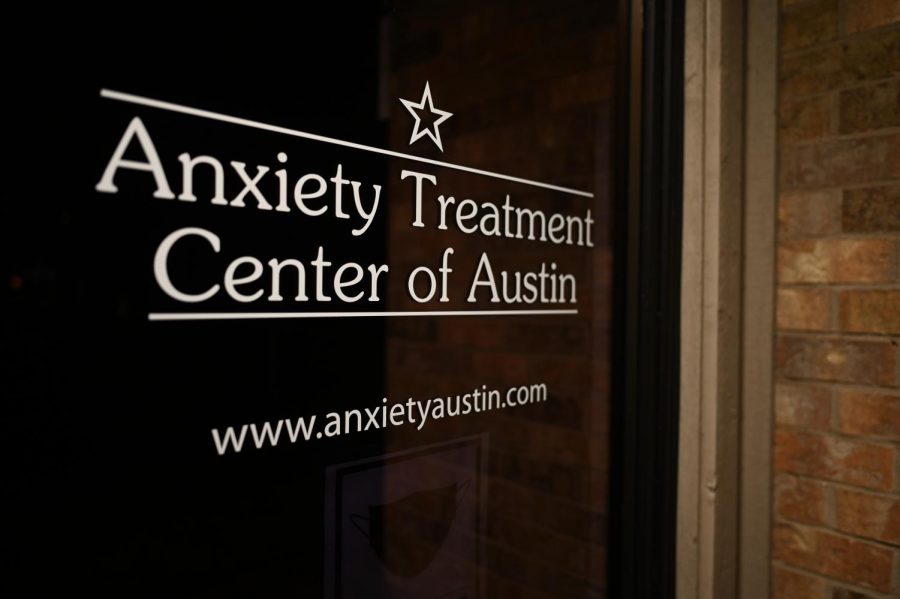Psychologists, people with OCD share experiences, harm caused by misinformation
December 4, 2021
When terrorists sent out letters laced with anthrax after the 9/11 attacks, Tom Somyak spent an hour and a half checking the mail each morning.
At work, he constantly returned to the restroom to wash his hands if he touched mail from his co-workers’ desks. Touching the handle to exit the restroom was another battle in itself. After growing up with symptoms of OCD, he knew it was time to seek help.
“I wasn’t enjoying life at all,” UT alum Somyak said. “It was causing problems with my family, my marriage was suffering. It was damaging my relationship with my son.”
Obsessive Compulsive Disorder affects 2.3% of the U.S. adult population. Those who live with OCD experience repeated unwanted images and thoughts, known as obsessions, often leading to compulsions or repetitive behaviors that alleviate anxiety. While everyone experiences OCD differently, misinformation surrounding the disorder — such as viewing those with OCD as enjoying cleaning and organizing — can delegitimize the real experience of those suffering.
In the popular sitcom “Friends,” for example, Monica Geller portrays her OCD as a harmless, humorous and even endearing habit. Somyak said his struggle with OCD contrasts starkly.
“What gripes me about the media is (OCD is) portrayed as quirky and funny,” Somyak said. “People don’t understand that this is really debilitating. This could ruin your life.”
After the illness caused problems in his personal relationships, Somyak’s wife found him an OCD specialist in Austin. Now, Somyak runs his own local OCD support group and said he learned to better manage his compulsions.
“It’s such a relief to talk to other people who understand,” Somyak said. “Friends (and) family can be sympathetic, but if they don’t go through it, they really don’t get it. … I want to be there for someone who needs it because you never know who’s going to pop in and really need someone to talk to.”
Elizabeth McIngvale, director of the McLean OCD Institute in Houston, said using OCD as a way to describe people who enjoy cleaning dismisses the severity of the illness.
“People say things like, ‘My mom likes to keep things organized. She’s so OCD,’” McIngvale said. “This is a severe chronic illness, and anyone who lives with OCD wouldn’t wish it on their worst enemy. When we just use (OCD) flippantly, people don’t understand the severity of the illness.”
Growing up with symptoms of scrupulosity — a subtype of OCD causing anxiety over intrusive thoughts which violate religious or moral beliefs — Anna Wells, a member of Somyak’s support group, worried about not praying or confessing correctly.
After her daughter’s second brain tumor surgery went awry, resulting in lifelong disabilities, Wells spent the following days replaying every decision she made leading up to the surgery. Incessantly praying, repeatedly asking the doctors for reassurance and scouring the internet for similar complications, she needed to know it wasn’t her intrusive thoughts that led to her daughter’s disabilities.
“I got to the point where I was like, ‘This is not living,’” Wells said. “I wasn’t sleeping. … It was a horror film that was constantly looping.”
It wasn’t until age 36 that Wells got her official diagnosis of OCD after she found representation of scrupulosity in a podcast. Finally hearing experiences that mirrored hers, she realized she might be struggling with OCD. Now, at age 37, she sees a psychologist regularly and visits support groups.
“If you’re seeing someone that likes to clean or organize as, ‘I’m so OCD,’ and you’re living in this nightmare, then that’s not really fair,” Wells said. “Yet, we’re portraying it as something else (and) it further isolates you from potential help.”
After leaving UT’s Counseling and Mental Health Center in 2013, Dr. Diana Damer opened the Anxiety Treatment Center of Austin, where she works as a director and psychologist helping those with OCD. Through her work, Damer hopes to help those with OCD work through their obsessive thoughts to understand their diagnosis in detail.
“If a person has never had treatment before, then just understanding what’s happening can be extremely powerful because people think, ‘There’s something wrong with me. I’m a bad person because I’m having these thoughts,’” Damer said.
As someone who’s struggled with OCD since the age of 12, McIngvale serves as a national advocate for the International OCD Foundation, raising awareness and reminding those with OCD that they’re more than their diagnosis.
“Help and hope are always available,” McIngvale said. “A lot of times, it feels like, ‘Am I going to be able to manage my symptoms, am I going to get out of this?’ The answer is you 100% can get out of this. You can live a full life with freedom despite a diagnosis of OCD.”



